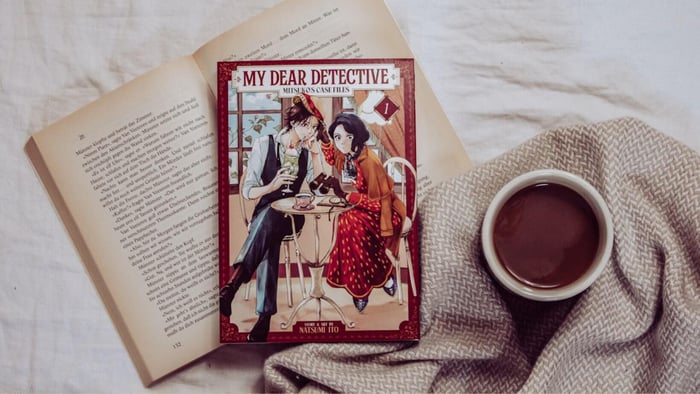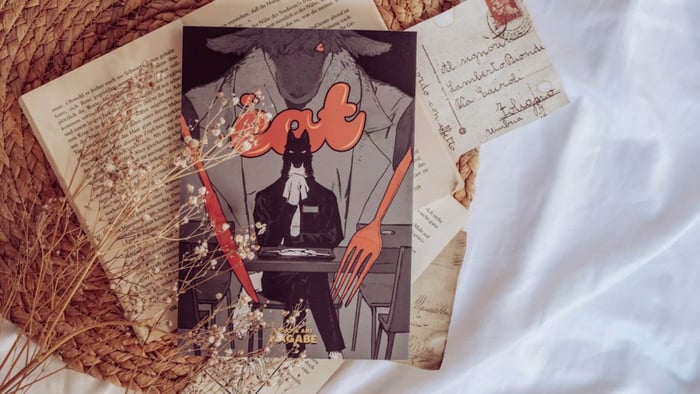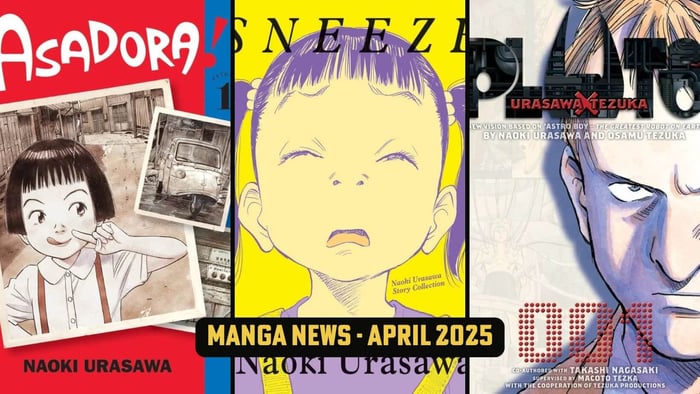Planeta was a title that immediately caught my eye on Walt’s Comic Shop because of its cover, but I hesitated at first. When a blogger featured it on Instagram, I was instantly intrigued, and during my next order, the standalone volume had to go into my basket.
Planeta comes from Spanish artist Ana Oncina and was published in Spain in October 2023. On the U.S. market, it is the second of her works to be released by Tokyopop, following Just Friends.
How was Planeta?
The protagonist, Valentina, lives in a cabin in the woods, secluded with her dog Sopa and her pottery workshop. But night after night, she dreams of another life. In a distant future, she lives on the planet Nébulon, in a seemingly perfect, digitally controlled society where every person is assigned their “perfect” partner by algorithm. There, she shares a dome-shaped glass house with An3, her ideal match. It's a relationship that appears perfect from the outside but slowly begins to crack from within.
Valentina starts to feel more alive in these dreams than in what is supposedly her real life. Or is it the other way around? If both worlds evoke real emotions, which one is the “true” one? This central question runs like a red thread throughout the entire work and ultimately remains deliberately unresolved. Oncina plays with the reader’s expectations without leaving them frustrated. Instead of a clear answer, she offers an experience, an invitation to empathize and reflect.
Planeta is not a typical science fiction story, even though it makes use of futuristic elements. Rather, Oncina uses the genre as a stage for a deeper exploration of themes like emotional alienation, predetermined life models, and the question of what it truly means to live or to love. The relationship between Valentina and Ane stands at the heart of it all. It’s subtle, sensitive, and never heavy-handed. It’s a tender, queer love story that unfolds not through dramatic gestures but through nuances, glances, and quiet doubts.
A key narrative device in Planeta is the use of color. Oncina deliberately employs different color palettes to distinguish the worlds: warm, earthy tones for rural reality; cold, monochromatic hues for the dystopian future; and playful magenta shades for the virtual reality. The world in the cabin, with its soft ochres, browns, and greens, creates a sense of comfort, nostalgia, and inner peace. The textures are soft, the details lovingly rendered - you can almost feel the warmth of the tea and the roughness of the clay in Valentina’s hands.
Nébulon, the futuristic society, is depicted in cool tones - turquoise and light blue dominate. This palette gives off a sterile artificiality that feels futuristic but also soulless. The environment is often empty, minimalist, almost clinical. This conscious reduction enhances the feeling of emotional isolation, despite the system’s “perfection.” Meanwhile, the virtual reality - a kind of leisure world within the dystopia - is rendered in bright pink and magenta. These colors initially convey a playful lightness, like an amusement park, but upon closer inspection, they feel almost eerie: too sweet, too perfect, too smooth. Through these contrasting color schemes, Oncina achieves something special. The transitions between worlds are not only visually clear but also emotionally palpable. Color becomes mood, a language of the protagonist’s inner world, a visual echo of her emotional state. Especially powerful is the finale, where the color palettes begin to blend - a moment that is deeply moving both narratively and visually.
The art style, with its softness and clarity, is reminiscent of works by Katie O’Neill (Tea Dragon Society), but it never feels childish. On the contrary, the simplicity of the style makes the characters’ emotions all the more poignant. Facial expressions, gestures, and empty spaces often speak louder than words.
Structurally, Oncina also takes bold steps. The plot is intentionally ambiguous. The two narrative strands flow into one another without a clear resolution. This ambiguity is intentional. Planeta is not a comic that explains everything, but one that invites thought. Despite its thematic complexity, Planeta never feels overloaded. Oncina masterfully balances quiet poetry with narrative clarity. Her panels are often calm, almost meditative - an invitation to pause. At the same time, the story develops a subtle pull that carries the reader from page to page, driven by the urgent question: What is real? And what do we wish were real?
The characters are also cleverly constructed. Valentina is not a heroine in the classical sense but a deeply human figure struggling with her sense of alienation. Ane, her great love in both worlds, remains ambivalent - supportive and yet hard to grasp. It’s precisely this ambiguity that makes the story believable and moving.
Tokyopop publishes the manga in a large format with high-quality paper.
Is Planeta worth reading?
Planeta is a graphic novel that unfolds slowly but lingers long after. It is a work about being human in a world that leaves less and less room for doubt, about the longing for genuine connection in an age of perfect illusions. Whether Planeta is a dream or reality remains unresolved. But the emotions it evokes are real. And that’s what makes it so special.
Planeta
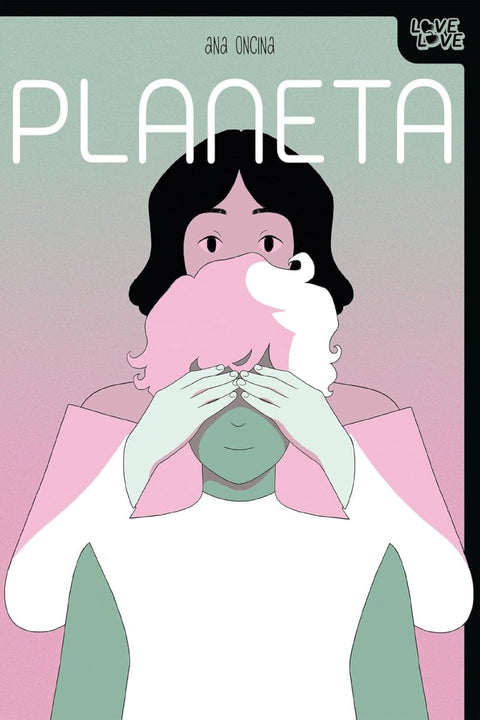
€14,95
€16,99
A sci-fi lesbian romance taking place in two possible realities: a cozy little cabin on modern Earth, or the distant planet Nebulon ruled by technological advances far beyond our time. This unique and thought-provoking graphic novel by acclaimed Spanish artist… read more

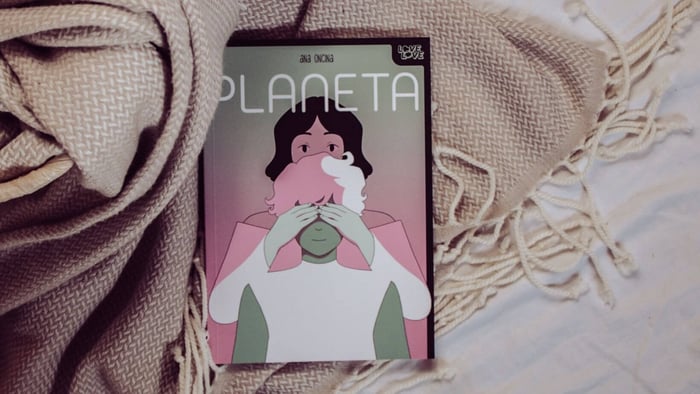
.png)
